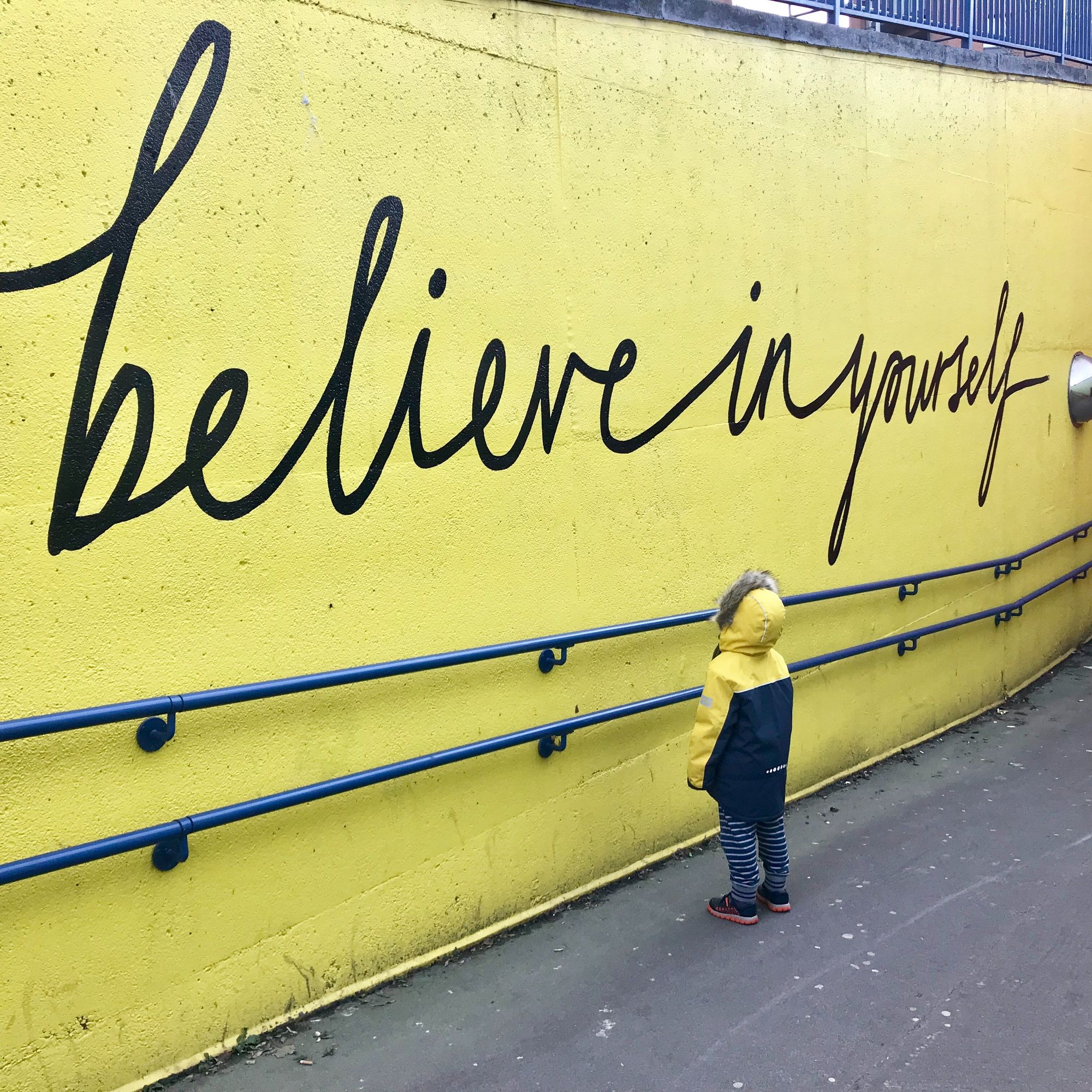Why look at others?

Points of reference help us determine where we are today, whether or not we should change something and if we match expectations. If you want to know how you are doing, you need to compare yourself to others. That is how we were raised, that is how we determine whether or not we are running a good business.
Whenever we read about a new IPO, we instantly look at other similar companies in that industry to see “how big” the IPO was compared to those of others. Interestingly enough, regardless of the IPO targets of either one of the two.
What if the IPO-goal was to raise X-million dollars, and the company more than superseded their own expectations? Have enough to take the next steps in their company development? Why is that not important?
What would happen if we would only look at our own expectations? Would we be happier and possibly more “successful”?
Driven by others
I don’t really know if I am running a good business or not. At least, I don’t know whether or not I am doing well compared to others. Should I care? Sometimes I do actively think about it. Simply because maybe it would mean missing out on opportunities that I am actually striving to capitalize on and need to reach my goals.
But, in the last couple of years I have noticed that I seriously could not care less how others are doing. I have my own goals, developed my own set of rules on what I think is important and what is not. Next to that, I have a great team of people around me who help me develop those thoughts even further.

The thing is, once you are driven by the objections of others, you force yourself to look at the world from a different perspective. Surely there is nothing wrong with that, but the views of those you are trying to please, need to match your own expectations.
I believe that it is far more important to meet my own personal aspirations, first. Move forward and do my thing. I know that once I start to care and possibly worry about how well/or bad others are doing, it will change the decisions I make.
Make a change
The best thing about change, is that it is constant. We are in constant motion and need change to thrive. Humans are terrible when things stand still. We let our work slack, relationships unmanaged and forget to spend time out-of-the-box.
I don’t want to be like everybody else. I want to learn to make my own mistakes. Mistakes that help me develop myself and those around me.
In essence this means I do not want to do things too conventionally; be different and use the tools that are readily at our disposal in unconventional ways. Essentially, I strive to teach others how they can learn to change; That they do not need to be afraid of change as a concept, but let it come naturally.
Change is part of growing up. Change is finding yourself and your way to do things.
Roadblocks
I have noticed that when I am stuck on a single chore for some time, I get good at it, but the level of innovation goes down tremendously within a relatively short period of time. Once I have created the setup I like, I tend to leave it that way for a while, until I hit an unequivocal roadblock.

Organizations are essentially nothing more than a collective group of people who work on one goal, but each fulfill different tasks within the group to reach that one goal.
When an organization reaches its steady state, it does not need to innovate anymore. As soon as things go as planned, they switch to auto pilot-mode. There is no need to change a winning team, or the game plan for that matter. Everyone in the organization is asked to continue their tasks and work with the purpose of keeping the ship steady.
Very few organizations actively tell their employees to find roadblocks. Yet, I strive to do just that at GANDT Ventures.
Take on challenges
One of the general motto’s I work by is: “give it a go, take care of problems as they arise.” My team has learned to think that way, too. It is great to see that every time we get a customer request, each individual thinks about solutions first – before diving into the potential roadblocks.
We constantly force ourselves to move forward towards the next roadblock. Of course within the boundaries of what is possible, but with a decisive “why not-” attitude.
I also preach and teach everyone to follow their instincts first. See whether or not their ideas hit home, before we look at how competitors approach an obstacle. This gives us mental and creative freedom to come up with solutions; solutions others might not have come up with so far. I aim to create a team of individuals who speak their minds, come up with solutions and learn to believe in their own, personal approaches.
This is not always the best method or most efficient way to deal with issues. However, it does help each and every one on the team to look at problems from a solutions standpoint and let’s them deal with limitations differently (possibly later). With time they’ll learn to identify the roadblocks earlier. They’ll learn to speak to our customers about these roadblocks before starting on an endeavor.
But, it is important that they learn to take the maiden route and simply go for it. I will not stop anyone on the team from trying to help a customer out.
Learn from others
As you might have understood by now, I run a consulting firm. We help companies innovate and change their approaches – ideally using data and digital tools. We have learned that we are a consulting firm, not a full-fledged venture builder, innovation-fundraiser or an agency. But we apply techniques and working methods of multiple company types.
If I were to describe the core GANDT Ventures Team at this point in time, I think of each individual as an opinionator, coach and advisor; each with their own strength and weaknesses.
What I’ve learned from working with agencies, consultancies and venture builders alike, is that they each have their own approach to business. It is hard to compare our business ethics and ideas to those of a classical agency, though.
Nor do I want to measure our success by looking at the amount of people we have “placed” or hired at or for our customers, or by the amount of employees we have within the group/our extended network. In essence, I refuse to measure our success by means of looking at others.
Buckets to strive for: Empathy and understanding
What we can learn from others, is how the market perceives and understands service companies like ours, though. Buckets exist, whether we like it or not and we need to know what we are and what we aren’t.
I want to work in the field of innovation and digitalization. And each and everyone on the GANDT Ventures team wants to work in this field. Our companies allows us to help out others who are struggling to keep up with innovation topics.

Yet, I strive to do much more than that. I want to leave a lasting positive impression with our customers – as knowledgeable and great individuals. The only buckets we strive to meet are those of empathy, understanding and knowledgeability.
I admire companies and individuals who achieve these values; who not only say they care, but who show they really do. Regardless of the industry, those are the companies and individuals I want us to learn from. If next to that, our company allows us to provide for more and more families whilst helping others, that is great and the only admirable thing we will continue to work for.
Success cannot be put into numbers, but knowing that you are actively making a difference to people’s lives, is all that’s needed. That is what makes me truly happy, satisfied and why I continue to get up early every single day to make a difference. That is, what makes us as a team and a company, successful.
Before your go
Please subscribe to my blog. You will be the first to receive my posts and articles on entrepreneurship, digital marketing, tech trends, user experience design and more. No ads, no cost, no strings attached.
I write all of my articles and they reflect my personal opinion. I’d love for you to join the conversation.
Email Address
Subscribe
Twitter more your thing?
You can find / follow and converse with me, right here: Follow @rlivain


